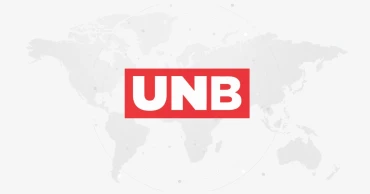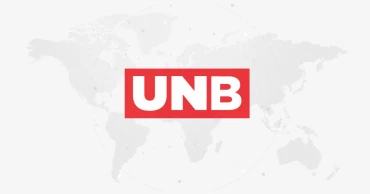BEA
BEA interim committee formed with Dr Mahbub Ullah as convener
An interim committee of Bangladesh Economic Association has been formed with Prof Dr Mahbub Ullah and Prof Dr Mohammad Helal Uddin as its convener and member secretary respectively.
The 29-member interim committee was formed as per a decision taken in the 21st meeting of the BEA executive committee, which was presided over by its president Dr Qazi Kholiquzzaman Ahmad, said a press release on Wednesday.
Former minister Quamrul Islam placed on 4-day remand
Earlier in May 2024, Qazi Kholiquzzaman Ahmad and Md Aynul Islam were elected the president and the general secretary of the BEA executive committee for two years (2024-2026).
BEA, an exclusive professional organisation of economists of Bangladesh, is working to protect the public interests and to interact amongst economists and learn the art of teaching and research and improve their expertise in the chosen area of their interest.
Dr Yunus asks fire probe committee to submit recommendations in 10 days
Some 5,000 BEA members spread all over the country and even abroad.
The organisation was founded in 1950 by universities, colleges, banks professionals, and academicians to bring together teachers, professionals, and all others practicing and interested in social sciences.
1 year ago
Bangladesh Economic Association proposes 70 percent tax on cigarettes, tobacco
The Bangladesh Economic Association (BEA) has proposed a 70 percent tax on all types of cigarettes and tobacco in the next budget.
The association reckons that doing so will reduce smoking by about 66 percent, alongside generating revenue of Tk1,700 crore for state coffers.
The proposal was submitted to the National Board of Revenue (NBR) during the pre-budget discussion held at the NBR Building on Sunday (February 18).
The General Secretary of the BEA Professor Dr. Md. Aynul Islam presented the budget proposal. Vice President of the association Professor Hannana Begum was present.
Read more: Govt cut VAT, duty on import of 4 essential items ahead of Ramadan
According to the BEA's proposal, imposing a single supplementary duty of 70 percent on all types of cigarettes would increase the price of cigarettes by an average of 130 percent.
Smoking will be reduced by 66 percent. About 70 lakh smokers will quit smoking, and about 71 lakh young people will stop habituating to smoking. Also, the additional tax revenue of the government will be earned at least Tk1700 crores, the proposal stated.
Similarly, the BEA demanded to impose a tax of 70 percent on all types of tobacco products including smokeless tobacco such as jorda, gul, sadapata, etc.
On the other hand, in the case of bidi, if the tax is imposed at the rate of Tk 4.90 on the retail price of every 25 shalak (piece) packet, the government will be able to collect additional revenue of Tk 800 crore.
Read more: ICMAB delegation takes part in pre-budget discussion with NBR
The BEA thinks with such a tax increase; revenue earning will be raised and it would help to revive the economy from the ongoing economic crisis. The BEA has a total of 27 new sources of revenue income.
At this time, Prof Aynul said, as a method of gathering resources for the upcoming budget, no pressure can be applied on the general population, such as the poor, lower class, lower middle class, and middle class.
Due to various reasons, this class of people is now in a severe economic crisis. It would be unfair at this moment to rely completely on them as in the past for tax collection.
In that case, the imposition of additional income tax on these three groups – the super-rich, the rich, and the upper-middle class – can be considered, said Prof Aynul.
Read more: PROGGA, ATMA for imposing specific taxes on tobacco products
2 years ago
BEA proposes alternative budget of Tk 20.50 trillion
President of Bangladesh Economic Association Prof Dr Abul Barkat on Sunday proposed establishment of an independent commission to recover black and laundered money.
He said that the amount of black money is over Tk 88.61 trillion in the country, accumulating from FY 1972-73 to FY 2018-19. Of which Tk 8 lakh crore has been laundered abroad at the same time. Barkat was addressing a press conference on the occasion of placing BEA’s alternative national budget for FY 2022-23.
The size of the alternative budget is Tk 20.50 trillion for the upcoming budget of FY 2022-23 along with 338 recommendations.
READ: Budget 2022-23: Economic self-reliance, adequate supply of commodities to be key challenges
The revenue income from internal sources has been estimated at Tk 18.70 trillion. In addition emphasis has been put on direct tax and recovery of black and smuggled money to meet the budget deficit.
In the alternative budget, foreign loans and bank loans have been discouraged.
Prof Dr Md. Ainul Islam, general secretary of BEA moderated the session.
3 years ago
Economists emphasise agro-based infrastructure
Three of the country's leading economists urged to put emphasis on agro-based industrialization in the wake of the global economic downturn and coronavirus epidemic.
They made the call while participating in a web seminar titled 'Industrialization: In Search of a Decent Bangladesh' organized by the Bangladesh Economic Association on Saturday afternoon.
The economists participating in the seminar were: Dr Kazi Khaliquzzaman, Chairman of PKSF Palli Karma Sahayak Foundation and Dhaka School of Economics, Dr. Shafique uz Zaman, former chairman of the Department of Economics at Dhaka University and Prof M Moazzem Hossain Khan, former chairman of economics department of Rajshahi University.
The sixth part of the 13-part discussion session was held on the theme of Professor Abul Barakat's recently published research book 'Socio-Economy-State on the big screen: In search of a better Bangladesh from the catastrophe of the virus'.
Also read: Speakers for tapping potential for FDI in agro processing, light engineering, blue economy, education sectors
Dr Kazi Khaliquzzaman said that, "I agree with what Abul Barakat has said in his book that everyone will have equal ownership of natural resources. We need to go back to agro-based industrialization to maintain the balance of nature to avoid the adverse effects of climate change. ”
Referring to the benefits of agro-based industrialization, Professor Shafiq-uz Zaman said, “It will increase the prices of agricultural products. Farmers will get more money. Farmers' purchasing power will increase. We have to remember that farmers are both producers and buyers of industrial products. ”
He also added, “High growth and employment do not go together. We have to think about how to increase production without cutting workers. We need to expand the internal market, create diversified agricultural products and increase investment in agricultural research.”
Referring to Professor Abul Barakat as an 'unconventional economist', Moazzem Hossain Khan said, "He termed the current industrialisation in the country as catastrophic and recommended 15 solutions to get out of it."
4 years ago
Proposed budget hardly prioritises pvt sector: Economists
The private sector, affected during the COVID-19 induced shutdown, did not get priority for sustainable recovery in the proposed budget, economists say.
5 years ago







